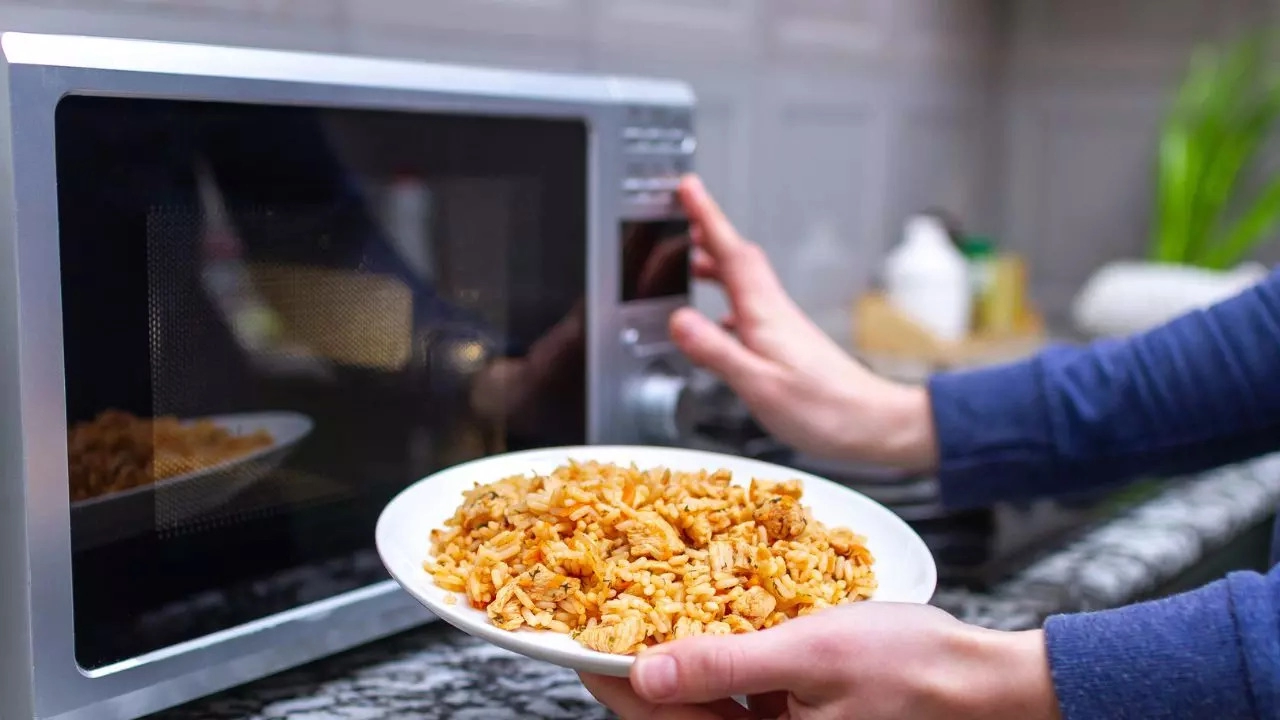Akanksha Arora • 22 Sep 2024
Is It Safe To Reheat Your Food In Microwaves? Know Everything

Is It Safe To Reheat Your Food In Microwaves? (Image: iStock)
While it has time and again been proven that there is nothing risky about microwave radiation, concerns about reheating food surface over and over again. Heating your food in microwave has been hailed as a lifesaver especially for those who do not have the time to cook.
However, it is important to note that more the cooking mode, it is important to understand when exactly is microwave cooking bad for you? Or does microwaving cause nutrient loss?
According to World Health Organisation, when used correctly, there is nothing to worry about.
Does Microwaving Food Decreases In Nutritional Value?
Some researches have shown that vegetables often lose their nutritional value when cooked/heated in the microwave. A report by BBC claimed that microwaving can remove 97% of the flavonoids. Additionally, a 2019 study pointed the nutrient loss of broccoli in the microwave. However, it concluded that shorter cooking times did not compromise nutritional content."Under the cooking conditions used in this study, microwaving appeared to be a better way to preserve flavonoids than steaming," the researchers wrote.Also, microwaving with too much water caused a drop in flavonoids.According to BBC, Lead researcher Xianli Wu, a scientist at the Beltsville Human Nutrition Research Center at the US Department of Agriculture, said that there is not one agreed mechanism to explain why microwaving could increase flavonoid content. "Moderate heat treatment might have been a useful tool in improving health properties of some vegetables," the researchers write.
A more recent study from 2023 also turned out well for microwave cooking. The researchers compared the impacts of boiling, steaming and microwaving different vegetables. Iy was then concluded that microwaving was the most effective for retaining nutrients.
Is Heating In Microwave Dangerous?
Microwaving food in plastic containers has become really common. However, some scientists did warn of ingesting phthalates. “Some plastic isn't designed for microwaves because it has polymers inside to make it soft and flexible, which melt at a lower temperature and may leach out during the microwave process if it goes beyond 100C (212F)," says Juming Tang, professor of food engineering at Washington State University.Rolf Halden, professor and director of the Biodesign Center for Environmental Health Engineering at Arizona State University explained microwaving mobilises contaminants. This process is used in laboratories to extract pollutants from samples.
Even if you avoid plastics, there are other potential risks linked to heating food in microwave. Food must be heated until it is 82C (176F) throughout to kill any harmful bacteria. And because bacteria can still grow each time food cools back down, you should not reheat the meal.
Get Latest News Live on Times Now along with Breaking News and Top Headlines from Diet, Health and around the world.